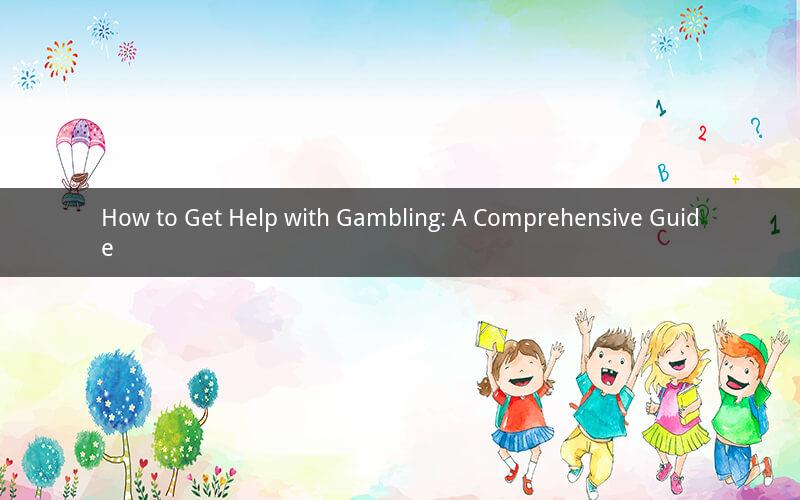
Gambling has become an increasingly prevalent activity among people worldwide, captivating them with its thrilling experiences and the potential for significant financial gains. However, it's not uncommon for individuals to find themselves in the grips of problem gambling, leading to significant financial, emotional, and social consequences. This guide will delve into various aspects of seeking help for gambling-related issues, including recognizing the signs, understanding available resources, and fostering a supportive environment for recovery.
1. Recognizing the Signs of Problem Gambling
The first step towards seeking help is acknowledging the presence of a gambling problem. Below are some common signs to look out for:
- Loss of Control: The inability to control gambling behaviors, including placing bets that were initially intended to be just for fun.
- Increased Risk of Complications: Prioritizing gambling over personal relationships, work, or responsibilities.
- Financial Stress: Experiencing significant financial difficulties due to gambling, including the possibility of falling into debt.
- Emotional Strain: Developing mental health issues, such as anxiety, depression, or mood swings, as a result of gambling.
- Behavioral Changes: Showing a marked change in behavior, such as withdrawal from social activities, secretive behavior, or isolation.
2. Seeking Help: Available Resources and Support
When a problem is recognized, seeking help becomes a critical next step. Various resources and support systems can be accessed to help individuals struggling with gambling addiction.
2.1. Therapeutic Interventions
Professional help, including therapy and counseling, is an effective approach to addressing gambling-related issues. Therapeutic interventions include:
- Individual Therapy: One-on-one sessions with a mental health professional who specializes in gambling addiction.
- Cognitive Behavioral Therapy (CBT): A structured form of therapy aimed at changing negative thought patterns and behaviors.
- Family Therapy: Therapy sessions involving the individual and their family members to address the impact of gambling on relationships.
2.2. Self-Help Groups
Self-help groups offer support, advice, and camaraderie to individuals struggling with gambling addiction. Some notable groups include:
- Gamblers Anonymous (GA): A fellowship of individuals who share their experience, strength, and hope with each other in order to overcome their problems with gambling.
- SMART Recovery: An alternative to GA that focuses on self-empowerment and behavioral changes.
2.3. Legal Resources and Support
Legal interventions, including seeking the help of an attorney, may be necessary to address financial, legal, or personal issues arising from gambling. This includes:
- Gambling Legal Helplines: Offering confidential advice on gambling-related legal matters.
- Support for Individuals with Gambling-Related Debt: Programs aimed at helping individuals who have accumulated debt as a result of gambling.
3. Fostering a Supportive Environment
Creating a supportive environment is crucial for an individual's recovery from gambling addiction. This includes:
- Family Support: Encouraging family members to participate in therapy and support groups, as well as promoting understanding and patience during the recovery process.
- Employer Support: Communicating with employers to request time off for therapy sessions, support groups, or counseling.
- Community Engagement: Participating in community events and support groups to connect with others who share similar experiences.
4. Building Resilience and Self-Empowerment
In addition to seeking help, building resilience and self-empowerment can enhance the recovery process. Some strategies include:
- Self-Care: Engaging in regular physical exercise, eating a balanced diet, and ensuring adequate sleep to promote overall well-being.
- Mindfulness: Practicing mindfulness and meditation to cultivate emotional balance and reduce stress.
- Goal Setting: Setting achievable goals that promote personal growth and well-being.
5. Addressing Co-Occurring Mental Health Disorders
Problem gamblers often experience co-occurring mental health disorders, such as depression, anxiety, or substance abuse. Addressing these conditions is crucial for recovery. Some approaches include:
- Comprehensive Treatment: A holistic treatment plan that addresses both gambling addiction and co-occurring disorders.
- Pharmacological Interventions: Medications, such as antidepressants or mood stabilizers, may be prescribed to address mental health symptoms.
- Integration of Treatments: Combining therapy, medication, and lifestyle changes to support overall well-being.
Frequently Asked Questions
Question 1: Can problem gambling be cured completely?
Answer: While problem gambling is a chronic condition, it is possible to manage and overcome the addiction through various therapeutic interventions and lifestyle changes.
Question 2: How can I help a friend or family member with a gambling addiction?
Answer: Encourage your loved one to seek professional help, provide support during their recovery journey, and be patient and understanding as they work through their challenges.
Question 3: Are there any medications that can help with problem gambling?
Answer: Some medications may be prescribed to address mental health symptoms or cravings associated with gambling addiction. Consult with a healthcare professional for personalized recommendations.
Question 4: How long does it take to recover from a gambling addiction?
Answer: The duration of recovery can vary for each individual. Some may experience significant improvement within a few months, while others may require ongoing treatment and support over an extended period.
Question 5: Can online resources help with gambling addiction?
Answer: Yes, there are various online resources, such as self-help websites, forums, and support groups, that can provide information and support for individuals struggling with gambling addiction.